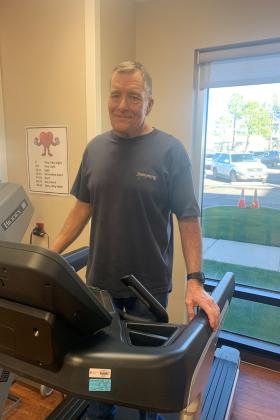| CHRISTUS Health
IRVING, Texas — February is American Heart Month, and CHRISTUS Health is focused on all matters of the heart, including the importance of cardiac rehabilitation following a cardiac event or surgery, what it entails and how it benefits patients.
Cardiac rehab patients are 57% less likely to experience a cardiac-related death while realizing as much as a 30% reduction in hospital readmission in the year following a cardiac event, according to the American Association of Cardiovascular and Pulmonary Rehab.
“After you have a heart procedure, it is very easy to just sit around and do nothing,” said Dr. Matt Foley, a cardiothoracic surgeon with CHRISTUS Trinity Mother Frances. “Cardiac rehab programs provide structure and accountability to make sure our patients are doing what they need to do to recover properly.”
Britney Caldwell and Sharon Hills, both cardiac rehabilitation nurses at CHRISTUS Mother Frances Hospital-Sulphur Springs, say most programs see patients two to three times a week. Their program sees patients for a least 30 minutes per session.
The American Heart Association recommends at least 150 minutes per week of moderate-intensity aerobic activity for effective rehab, she said.
“We recognize that every patient is different, so each program and intensity level is different,” Caldwell said. “That said, we know that rehab is beneficial for everyone, not just for their short-term recovery, but in building habits and routines that can benefit them longterm.”
Patients in cardiac rehab programs must be referred by a physician. Once in the program, patients are educated on weight and medication management, receive diet consultations, and are monitored for blood pressure and lipid levels to ensure their rehab plan is effective.
“If you have had any sort of cardiac procedure done, we highly encourage you to talk with your cardiologist or primary care provider to see if rehab is right for you,” Hills said. “We know it is not always fun or easy, but we know the benefits are worth it.”



